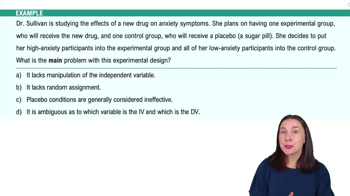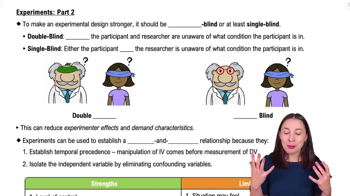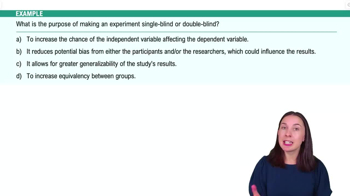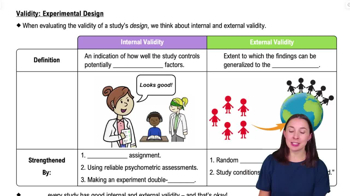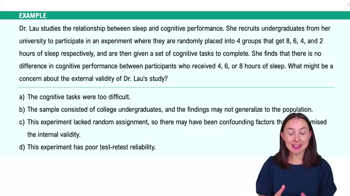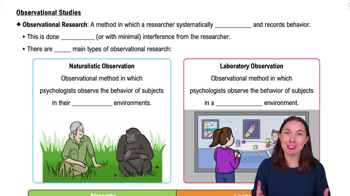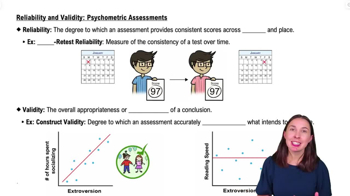Table of contents
- 1. Introduction to Psychology1h 43m
- 2. Psychology Research2h 20m
- 3. Biological Psychology2h 41m
- 4. Sensation and Perception28m
- 5. Consciousness and Sleep32m
- 6. Learning41m
- 7. Memory34m
- 8. Cognition37m
- 9. Emotion and Motivation35m
- 10. Developmental Psychology33m
- 11. Personality48m
- 12. Social Psychology41m
- 13. Stress and Health41m
- 14. Psychological Disorders44m
- 15. Treatment47m
2. Psychology Research
Intro to Research Methods
Struggling with Psychology?
Join thousands of students who trust us to help them ace their exams!Watch the first videoMultiple Choice
Julian Rotter's social learning theory is based on the principle that people are
A
inherently selfish.
B
motivated to seek reinforcement and avoid punishment.
C
motivated by morality.
D
motivated by society.
 Verified step by step guidance
Verified step by step guidance1
Understand the core concept of Julian Rotter's social learning theory, which emphasizes the role of reinforcement and punishment in shaping behavior.
Recognize that Rotter's theory suggests that individuals are motivated to seek positive outcomes (reinforcement) and avoid negative outcomes (punishment).
Consider how this motivation to seek reinforcement and avoid punishment influences decision-making and behavior in various contexts.
Differentiate this motivation from other potential motivators such as morality or societal expectations, which are not the primary focus of Rotter's theory.
Conclude that the correct interpretation of Rotter's theory is that people are motivated to seek reinforcement and avoid punishment, rather than being inherently selfish or primarily driven by morality or societal norms.

 1:46m
1:46mWatch next
Master Roadmap of the Lesson with a bite sized video explanation from Hannah Gordils
Start learningRelated Videos
Related Practice










